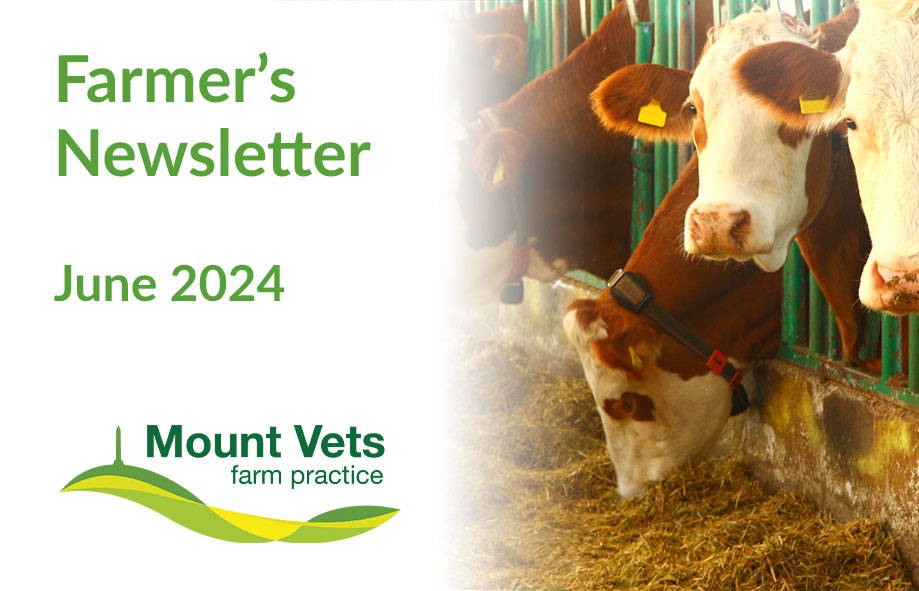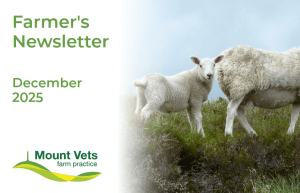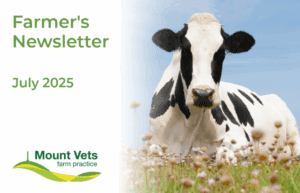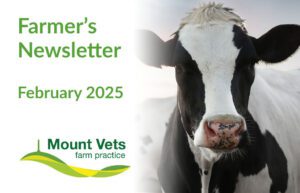June 2024
Here is the latest from our farm team at Mount Vets. If you would like any further advice or would like us to cover something in the next newsletter, please call us on 01823 662286 or contact us here.
We want to hear your feedback… Leave us a review!
We value your feedback and comments and would appreciate if you could take the time to leave us a review! Please follow the link to share your thoughts.
Nadis Blowfly Forecasts
As suggested by the NADIS blowfly forecasts over this past month, the risk of flystrike is especially high at present.
Here is an example of a recent case. Flystrike can progress extremely rapidly and any sheep showing signs of depression or itching should be thoroughly examined for patches of strike.
Carcasses, dirty backends, foot rot lesions and open wounds are all attractive egg laying sites. Strike can develop very quickly, with the first maggots appearing within 12 hours of eggs being laid.
Stock should be checked at least twice daily for signs of fly strike.
Clinical signs of fly strike include:
- Discomfort
- Agitation or restlessness
- Disturbed grazing
- Separation from flock
- Kicking or nibbling at affected area
- Damp/Discoloured fleece
- Lameness and wounds
- Dull and sick animals
- Sheep found dead
Treatment of fly strike
- Prompt treatment is necessary if it is to be successful.
- Seek Veterinary advice for severely affected or sick sheep.
- Clip affected areas and extend the clip into dry unaffected areas of skin.
- Apply an effective product to kill the maggots.
Dwarfism Update
(written by Charlie Aldington)
Regular readers of the newsletter (assuming there are some!) may remember our issue a few months ago, reporting on a bizarre incidence of two spring calving herds with a high proportion of their calves being born with dwarfism. Fortunately, no one else came forward after that article came out with further reports of cases. However, there have been some further developments that came to light after more research that may be of interest to those interested.
No one knows the cause of this strange condition, but the two primary theories boil down to either a) a secondary Manganese deficiency in mid-pregnancy or b) the influence of a yet unknown fungal mycotoxin which may be more prevalent in clamp silage made during particularly wet summers.
On the subject of the manganese deficiency, it is believed that it must be a secondary deficiency due to interference with gut absorption from some other element or mineral such as iron, calcium or phosphorous – though none of these have been convincingly proven. It is rare for soil and grasses to be genuinely low in manganese (which would lead to a primary deficiency), especially as the body has relatively low requirements normally. The official recommendations for manganese supplementation to try and prevent the recurrence of dwarfism is to supplement at around three times the body’s requirement (1g per head per day) in a bid to try and overcome whatever antagonism may be occurring in the gut.
Although there are some boluses and lick buckets which provide a small amount of manganese (closer to the normal requirements), the only way to achieve this is with a custom dry cow mineral made to this specification, fed from month 3-6 of pregnancy. Basically, immediately from housing onwards. Given that you’re going to be feeding this mineral for at least 3-4 months, make sure you are not over-supplementing copper here, especially if boluses are used as well. Fortunately, manganese is a relatively cheap addition and can be fed quite safely at even this high dose rate.
Should I be blood testing cows for manganese levels during mid pregnancy? An excellent question, one that it turns out is not simply answered! It turns out that blood levels of manganese can often be found to be low in sampled cows, even though their liver stores in liver, bone and elsewhere may be sufficient. This makes the blood test a little less reliable and raises the question of whether this is why manganese has been implicated as a possible cause. If you sample a general cross section of cattle, you’ll often find a decent number of low blood manganese results, even where no clinical signs or dwarfism history has been seen on farm.
We recommended, last time, that feeding a minimum of 25% of the DMI as straw would also help to reduce the risk. As it turns out, the idea behind this is to try and dilute the amount of potential fungal mycotoxin that might be in the silage. Farms feeding out 80-100% of the DMI as silage, if affected with the mycotoxins, would therefore be more likely to have cases as they would be exposed to more. Make sure that the straw and silage are always available in this ratio every day, rather than, for example, feeding out two days’ worth of silage and straw with the silage layered on top of the straw. Another way of reducing this risk would be to feed hay or substitute a portion of the silage in the ration for hay. It would appear that silage made in particularly wet summers or containing high red clover content are more prone to these issues. Mycotoxin binders may potentially be of some non-specific use though there is no real evidence out there of their efficacy in this area.
The most reassuring thing we have learned is that, for the most part, farms that experience these big outbreaks one year may never see it again, even having made no major management changes. A real head scratcher!
Nosebleeds in Cattle
(written by Charlie Aldington)
Nosebleeds are an infrequently encountered symptom in cattle and often fall under category A: Probably not too much to worry about. The majority of the time they’ll be down to trauma, either from a good old fashioned bust up with their herd mates or from a bonk on the nose coming through the handling system or crush. Minor nosebleeds will usually just stop once they’ve had time to calm down.
Another possibility is that of foreign bodies being stuck up their nose causing tissue damage, for example nasal bot flies can squirt their maggot young up the noses of animals to live up there rent free. Fly treatment will usually sort these critters out – administered by the normal route! We have even had incidents of brambles and sticks snapping off in the nostrils of cattle who are particularly enthusiastic hedge divers. Foreign body nosebleeds will typically be one sided only but could potentially be both sides.
Occasionally, a nosebleed will fall under category B: Dead before the vet arrives. Anyone who has witnessed this particularly gruesome event will testify to how quickly cows can bleed out through their nose and there is realistically nothing that can be done by the time that blood is spraying out of both nostrils like a hose pipe. This event is the end of a long trail of destruction that starts in the rumen and may have been slowly developing over the course of weeks, months or possibly even years.
We start with ruminal acidosis, either an acute one-off event (such as grain engorgement) or a chronic, grumbling acidosis from being on a high starch diet for an extended period, such as finishing cattle or potentially dairy cows being pushed hard for yields on a PMR with over-generous cake allocations. This overly acidic environment can burn small holes in the lining of the rumen, allowing gut bacteria entry which then drain from the rumen to the liver via blood supply. Here in the liver, they set up localized infections which grow into larger and larger abscesses. Usually, this is as far as it goes and may present no further problem for a finisher as it is soon destined for the hook. However, this can also make them sick or lead to reduced performance and condition loss, depending on the extent of the damage.
Very occasionally, these abscesses may chew their way into a major vein that passes through the liver, hitching a ride straight to the lungs. Once there, it’s business as usual, spreading further infection and damage as the abscesses continue to grow until, one day, they hit a major vein or artery. The final catastrophic event may sometimes be preceded by a few cases or more minor nosebleeds, so if you notice any odd cases for no apparent reason in high-risk animals, it may be worth thinking about getting them sent sooner rather than later!
Upcoming courses
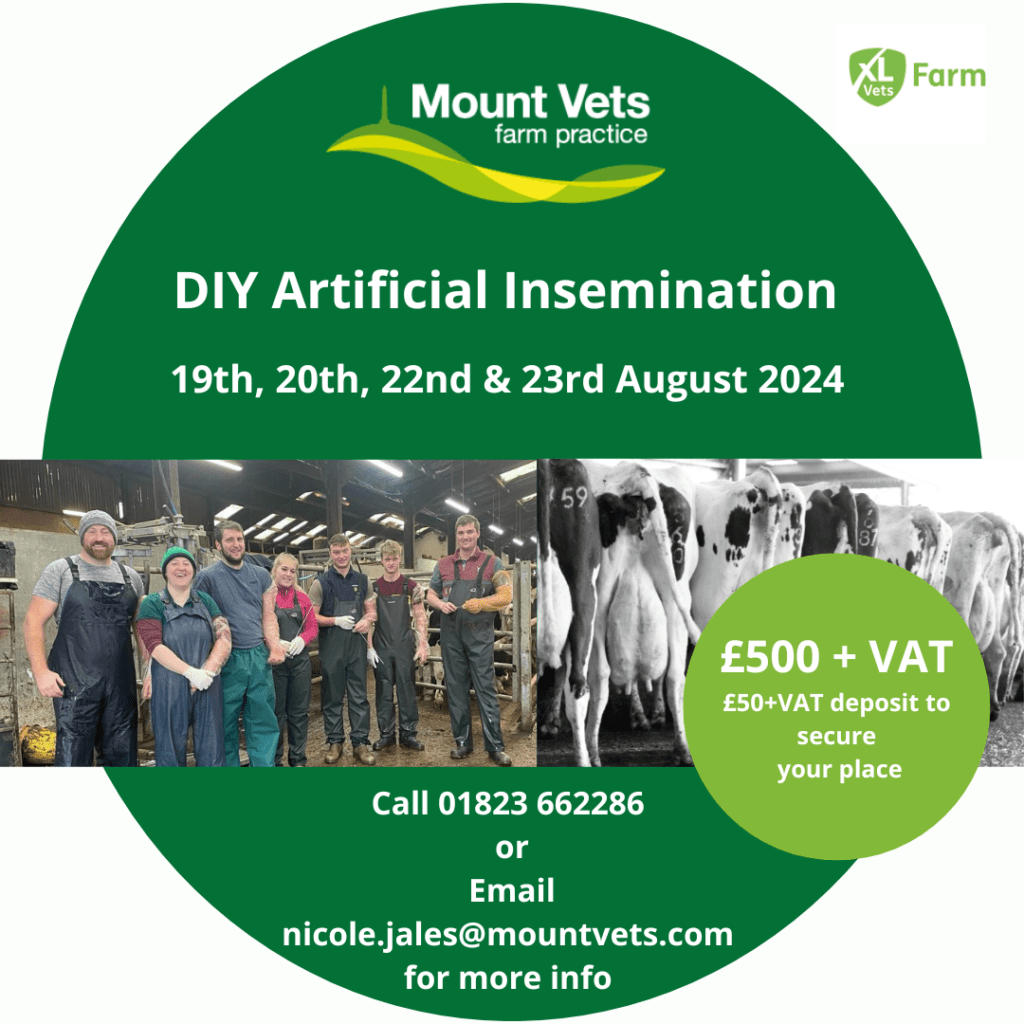
DIY Articial Insemiation Course
Our next 4-day DIY AI course will run on 19th, 20th, 22nd & 23rd August 2024.
This DEFRA approved course is aimed at anyone who has no previous experience in the artificial insemination of cows.
The 4-day course is run by our experienced farm vet Rob Mangham and is full of theory and practical sessions to make sure you leave feeling confident and safe in all aspects of AI.
The cost of the course is £500 + VAT, with a £50+VAT deposit to secure your space.
(Deposit will be taken off final amount)
Please ring the practice to book your place on any of our courses on 01823 662286 or email farm@mountvets.com
Meet the Team!
We have an experienced & friendly team here at Mount Vets. You might already recognise a few faces but over the next few months we will reintroduce you to some of our excellent team. To read more and see more of the faces of Mount Vets visit our team page, and be sure to follow us on Instagram and Facebook.
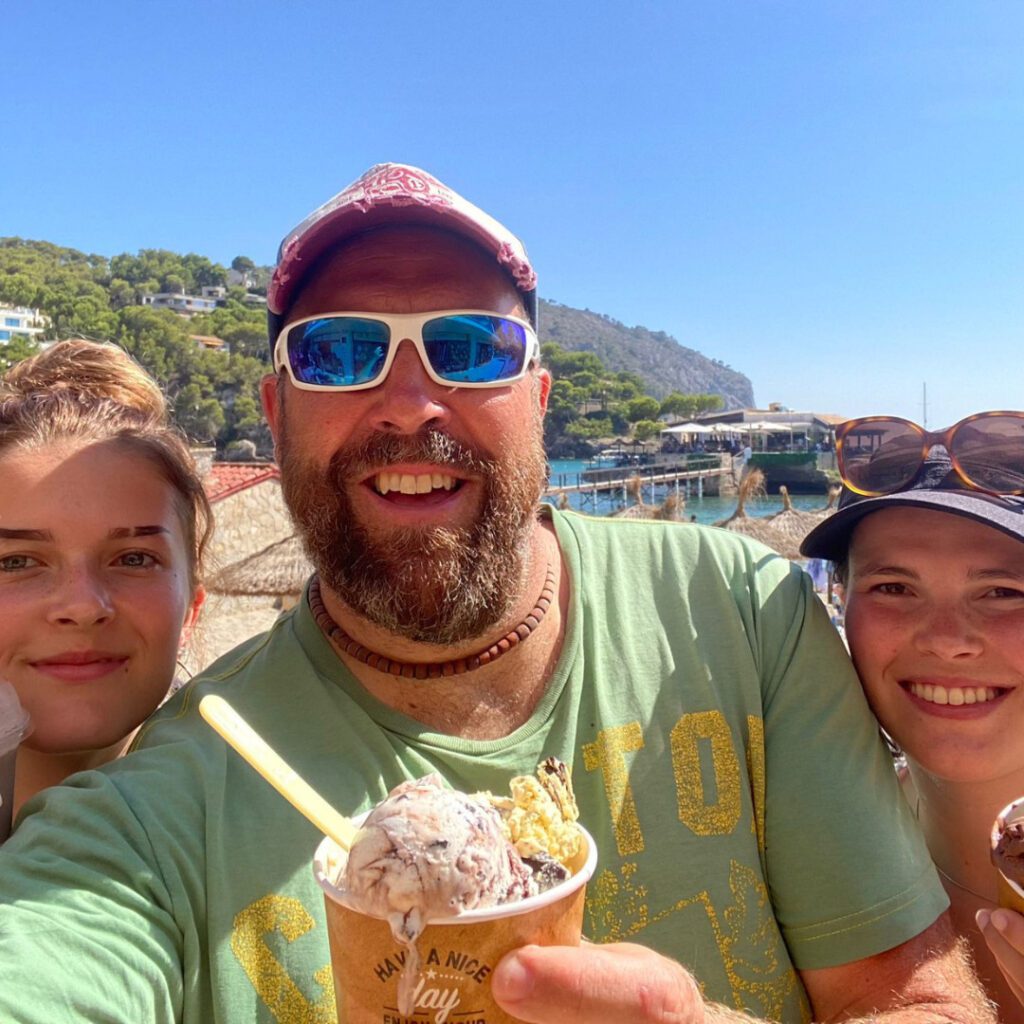
Piers Pepperell
Director
Many of you will already know our Mount Vets Director Piers; but did you know he has appeared on tv show Blind Date with Cilla Black?
Piers loves to spend a free day with his two daughters and three dogs, surfing on the North Devon Coast.
His favourite vet call out was when he was called into the waiting room and unknown to him at the time, but he then met his wife to be. She had brought in her eight baby bunny rabbits, which led on naturally to a 10-minute chat about pig wormers and her asking Piers out on a date.
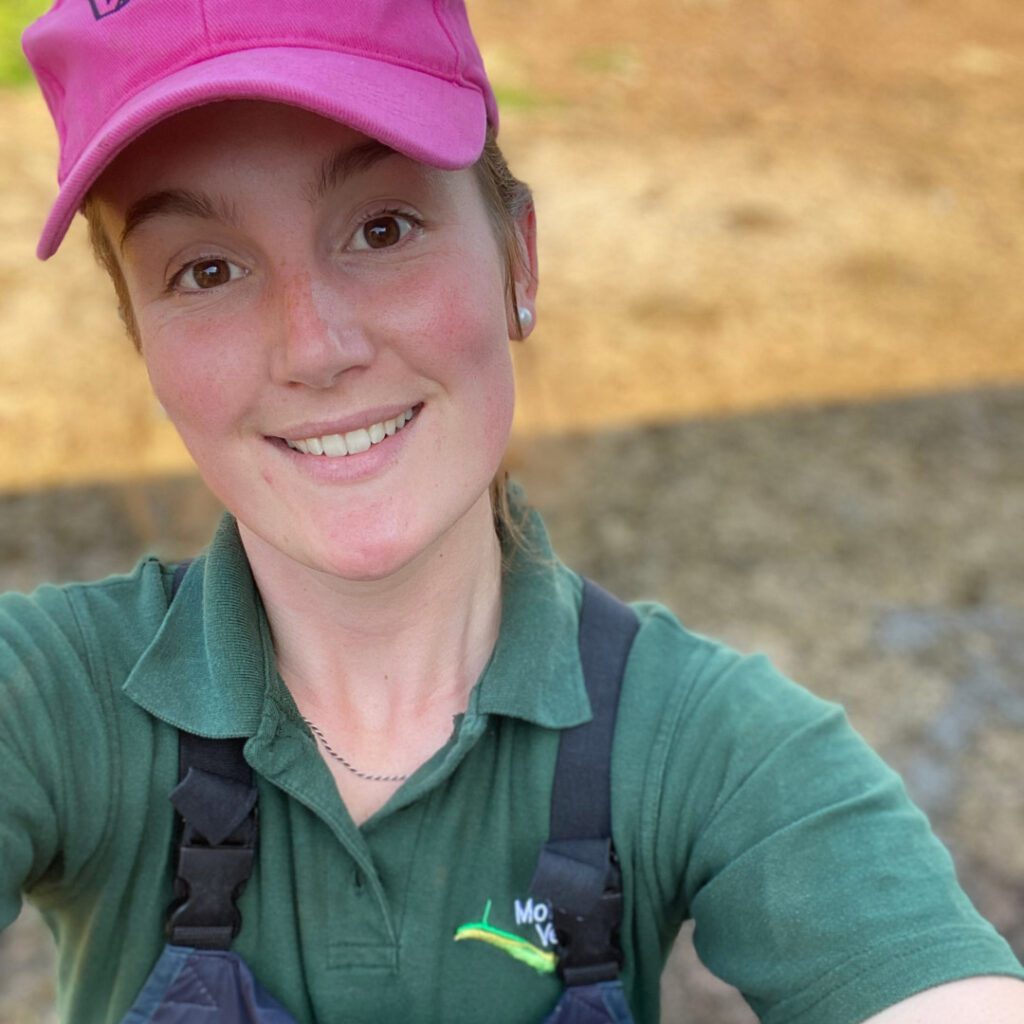
Pip White
Vet
Pip is one of our large animal vets. If you’ve met her, you will probably know how much she loves her cows. So much so, that she loves to spend her free time at home with her cows! That, or in the showring showing them. 🐮
Pip graduated as top student in her year from the University of Surrey.
Her favourite song is Mr Brightside by the Killers.
Have a question about any of the topics covered in this newsletter?
If you need any assistance with the topics covered in this newsletter, please do not hesitate to get in touch with our experienced farm vets who will be able to help. Call 01823 662286, or contact us here.
